第41章
I cannot quit this subject without taking notice of these conjectures of Mr Godwin and Mr Condorcet concerning the indefinite prolongation of human life, as a very curious instance of the longing of the soul after immortality. Both these gentlemen have rejected the light of revelation which absolutely promises eternal life in another state. They have also rejected the light of natural religion, which to the ablest intellects in all ages has indicated the future existence of the soul. Yet so congenial is the idea of immortality to the mind of man that they cannot consent entirely to throw it out of their systems. After all their fastidious scepticisms concerning the only probable mode of immortality, they introduce a species of immortality of their own, not only completely contradictory to every law of philosophical probability, but in itself in the highest degree narrow, partial, and unjust. They suppose that all the great, virtuous, and exalted minds that have ever existed or that may exist for some thousands, perhaps millions of years, will be sunk in annihilation, and that only a few beings, not greater in number than can exist at once upon the earth, will be ultimately crowned with immortality. Had such a tenet been advanced as a tenet of revelation I am very sure that all the enemies of religion, and probably Mr Godwin and Mr Condorcet among the rest, would have exhausted the whole force of their ridicule upon it, as the most puerile, the most absurd, the poorest, the most pitiful, the most iniquitously unjust, and, consequently, the most unworthy of the Deity that the superstitious folly of man could invent.
What a strange and curious proof do these conjectures exhibit of the inconsistency of scepticism! For it should be observed, that there is a very striking and essential difference between believing an assertion which absolutely contradicts the most uniform experience, and an assertion which contradicts nothing, but is merely beyond the power of our present observation and knowledge. So diversified are the natural objects around us, so many instances of mighty power daily offer themselves to our view, that we may fairly presume, that there are many forms and operations of nature which we have not yet observed, or which, perhaps, we are not capable of observing with our present confined inlets of knowledge. The resurrection of a spiritual body from a natural body does not appear in itself a more wonderful instance of power than the germination of a blade of wheat from the grain, or of an oak from an acorn. Could we conceive an intelligent being, so placed as to be conversant only with inanimate or full grown objects, and never to have witnessed the process of vegetation and growth; and were another being to shew him two little pieces of matter, a grain of wheat, and an acorn, to desire him to examine them, to analyse them if he pleased, and endeavour to find out their properties and essences;and then to tell him, that however trifling these little bits of matter might appear to him, that they possessed such curious powers of selection, combination, arrangement, and almost of creation, that upon being put into the ground, they would choose, amongst all the dirt and moisture that surrounded them, those parts which best suited their purpose, that they would collect and arrange these parts with wonderful taste, judgement, and execution, and would rise up into beautiful forms, scarcely in any respect analogous to the little bits of matter which were first placed in the earth. I feel very little doubt that the imaginary being which I have supposed would hesitate more, would require better authority, and stronger proofs, before he believed these strange assertions, than if he had been told, that a being of mighty power, who had been the cause of all that he saw around him, and of that existence of which he himself was conscious, would, by a great act of power upon the death and corruption of human creatures, raise up the essence of thought in an incorporeal, or at least invisible form, to give it a happier existence in another state.